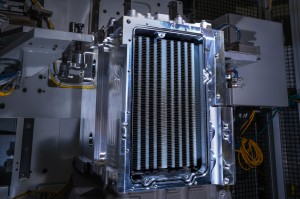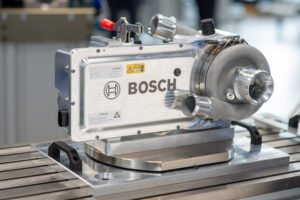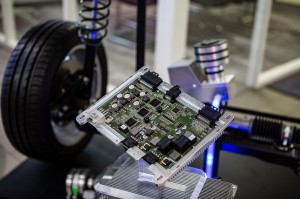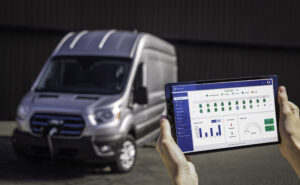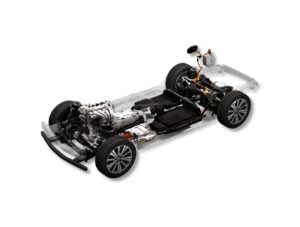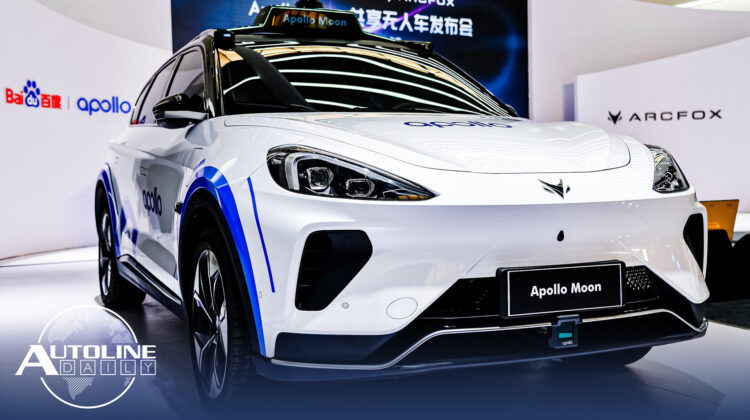
Listen to “AD #3104 – Baidu Introduces Level 4 Robotaxi; Senators Propose Tax Credit for Chip Makers; Mazda Lays Out EV Plans” on Spreaker.
Follow us on social media:
Runtime: 9:15
0:08 GM Partners to Make Fuel Cells for Aircraft
0:34 Bosch To Supply Fuel Cell Components to Daimler & Volvo JV
1:11 China Rolls Out 5-Year Semiconductor Plan
1:42 U.S. Senators Propose Tax Credit for Chip Makers
2:43 Volvo To Test Fossil-Free Steel
3:26 Schaeffler Tests Drive-By-Wire System in DTM Racing
4:13 Baidu Introduces New Level 4 Robotaxi
5:50 Ford Acquires Electriphi
6:25 Daimler Speeds Up New EV Introductions
6:57 Audi Won’t Launch Any New ICE Models by Mid-Decade
7:24 Mazda Lays Out EV Plans
8:08 VW ID.4 Correction
Visit our sponsors to thank them for their support of Autoline Daily: BorgWarner, Bridgestone, Intrepid Control Systems and Schaeffler.
This is Autoline Daily, the show dedicated to enthusiasts of the global automotive industry.
PLANES, TRAINS & AUTOMOBILES
The other day it was trains, now its planes. GM is partnering with a German-Swiss company, Liebherr, to make fuel cells for aircraft. Liebherr makes aircraft equipment and it will use GM’s fuel cell called HYDROTEC. It will be developed at a Liebherr lab in France. Earlier this week, GM formed a partnership with Wabtec to develop fuel cells for trains.
BOSCH TO SUPPLY FUEL CELL COMPONENTS TO DAIMLER & VOLVO JV
And Bosch will supply a joint venture between Daimler Truck and Volvo Truck with fuel cell components. That includes electric air compressors with integrated power electronics. The compressors govern the fuel cell system’s oxygen-supply. These compressors are part of the whole system that are used in heavy trucks or stationary units that generate electricity and heat. Bosch will mass produce the compressors by the middle of the decade. It’s making a big bet on fuel cells and is investing 1 billion euros between now and 2024.
CHINA ROLLS OUT 5-YEAR SEMICONDUCTOR PLAN
The Chinese and the U.S. government are taking action to address the chip shortage that is crippling automotive production. China’s Ministry of Industry and Information Technology laid out its 5-year plan that ends in 2025. It wants China to develop world-class companies that make semiconductors and integrated circuits. It also wants the transportation, electronic communications, internet, and car companies to collaborate on 5G V2X connected vehicles.
U.S. SENATORS PROPOSE TAX CREDIT FOR CHIP MAKERS
Meanwhile, in the U.S., a group of Democrat and Republican senators proposed a 25% tax credit for companies that make chips in the U.S. Last week the Senate approved $52 billion for production and research on semiconductors, including $2 billion specifically for the automotive industry. The Commerce Department expects these moves to create 7 to 10 new chip plants in the U.S.
VOLVO TO TEST FOSSIL-FREE STEEL
Back in April, Volvo Trucks partnered with Swedish steel maker, SSAB, to make trucks using fossil-free steel. Now Volvo Cars wants to do it, too. The steel is made by replacing coking coal with fossil-free electricity and hydrogen, which leaves virtually no carbon footprint. Volvo will use the steel for testing purposes and maybe a concept car. By 2026, SSAB hopes to have it ready for commercial scale and Volvo wants to be the first to use it in production. There’s a big push in Europe to produce metals that are CO2 free. Audi, BMW and Mercedes plan to use sustainable steel and aluminum.
SCHAEFFLER TESTS DRIVE-BY-WIRE SYSTEM IN DTM RACING
Motor racing is one of the best ways to develop new technology. That’s why Schaeffler is turning to the German DTM racing series to test out its drive-by-wire system. It’s installing it in an Audi R8 LMS GT3, a Mercedes-AMG and a BMW M6 GT3. Schaeffler calls it Space Drive and there is no steering column in these cars. All the steering inputs are transmitted as digital signals. This is all about getting ready for autonomous cars. Schaeffler predicts by 2035 about one in three vehicles on the road will have some degree of autonomy. And it says motor racing provides the most extreme conditions to prove that drive-by-wire works.
BAIDU INTRODUCES NEW LEVEL 4 ROBOTAXI
Autonomous cars keep making impressive improvements. In China, Baidu is going to launch 1,000 Level 4 robotaxis over the next three years. BAIC is going to make the electric cars under its Arcfox brand, and the model is called Apollo Moon. Most impressively, the cars will cost 480,000 RMB, which is about $75,000. Baidu claims that’s about one-third the cost of other L4 AVs. It expects the cars to have a 5-year life cycle. So our simple, back of the envelope calculations say that it would take about $41 a day in ride fares to pay for the car. Baidu Apollo is already offering robotaxi ride-hailing in Beijing, Shanghai, Guangzhou, Chongqing and other cities. And it claims it’s becoming a dominant force in autonomous driving.
FORD ACQUIRES ELECTRIPHI
One hurdle for EV adoption from commercial vehicle operators is making sure they can charge up their fleets every day. So Ford is acquiring Electriphi, a California company that’s developed software for charging management and fleet monitoring of electric vehicles. Ford will integrate the technology into Ford Pro, a new global business to help develop charging and energy management experiences for commercial customers. The acquisition is part of Ford’s $30 billion investment by 2025 in electric vehicles.
DAIMLER SPEEDS UP NEW EV INTRODUCTIONS
The other day we ran a story about how environmental group, Transport and Environment, called out several European automakers, including Daimler, for not having “ambitious phase-out targets” for ICEs. Well now we’re seeing some action from the German automaker. Manager Magazin reports EVs that were scheduled to come out in 2024 or 2025 will be moved up a year and that their ICE counterparts will be dropped from the lineup. An official announcement could come before the end of summer.
AUDI WON’T LAUNCH ANY NEW ICE MODELS BY MID-DECADE
Meanwhile, Audi is going to take an axe to its internal combustion engines. From 2026, it will no longer introduce any new gasoline or diesel cars. Not even hybrids. Audi will keep on building the engines it makes, but won’t introduce any new ones. We figure that in another design cycle or so, sometime in the early-2030’s, Audi will no longer sell ICEs.
MAZDA LAYS OUT EV PLANS
Speaking of the move to EVs, Mazda laid out its plans through 2030. Starting next year through 2025 the plan includes 5 hybrids, 5 plug-in hybrids and 3 EVs. We suspect those are the same 5 models with 3 different powertrains with the hybrid being supplied by Toyota. Then Mazda will use a new scalable EV architecture to come out with several models of various sizes and body types between 2025 and 2030. It figures that by 2030, BEVs will make up a quarter of its sales. Interestingly, it also says it will come out with a new in-line 6-cylinder engine, but didn’t provide any details.
VW ID.4 CORRECTION
And before we wrap up, viewer Phil pointed out we made a mistake in yesterday’s show. We said the ID.4 is made at VW’s plant in Chattanooga, Tennessee. While there are plans to start making the EV there next year, the ID.4 is currently produced in Germany. Thanks for catching that Phil.
Anyway, that wraps up this week’s worth of show. I hope you have a great weekend.
Thanks to our partner for embedding Autoline Daily on its website: WardsAuto.com
Seamus and Sean McElroy cover the latest news in the automotive industry for Autoline Daily.




